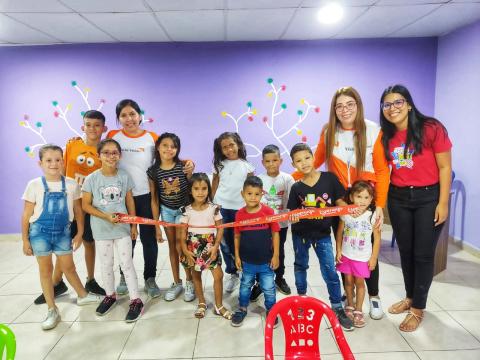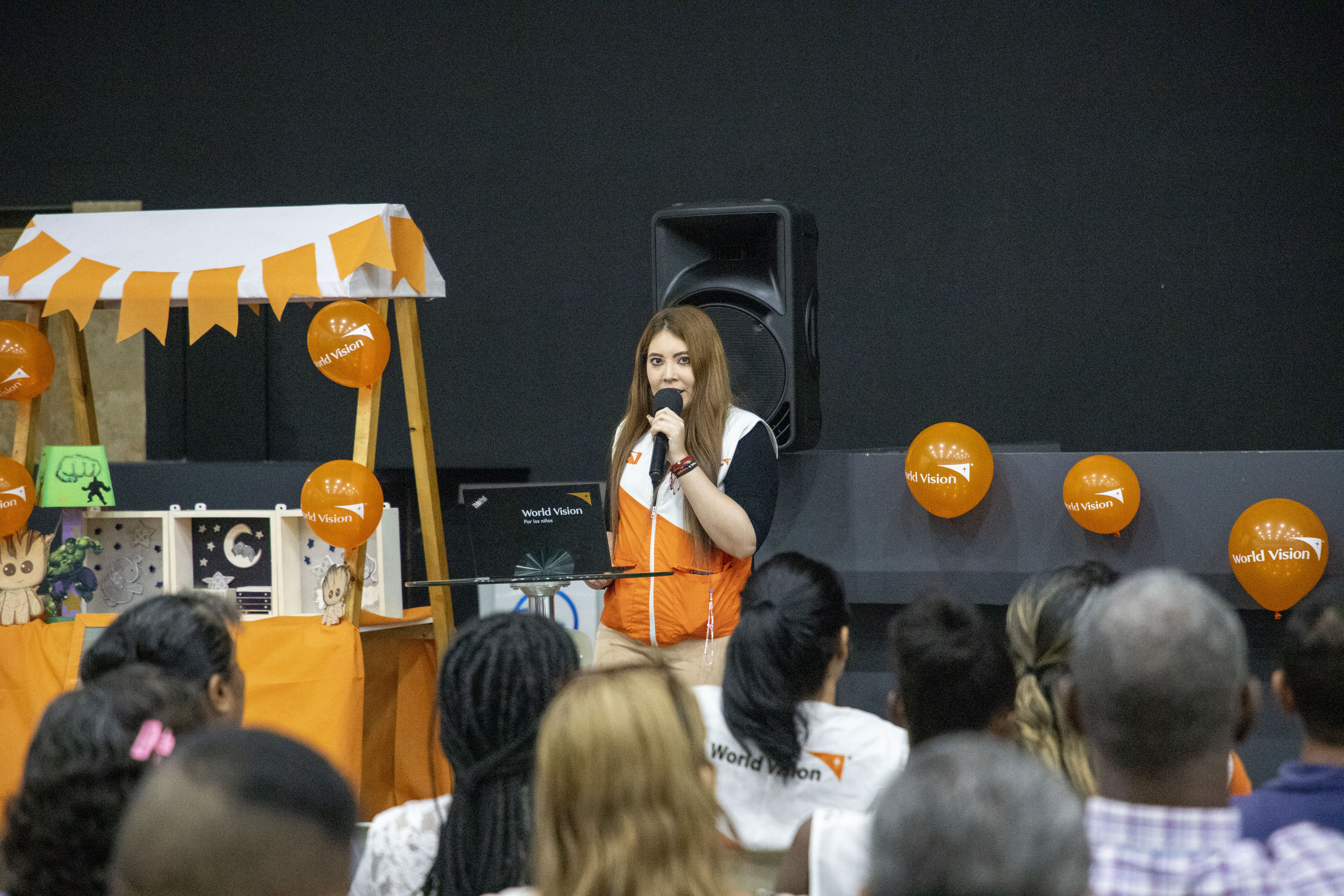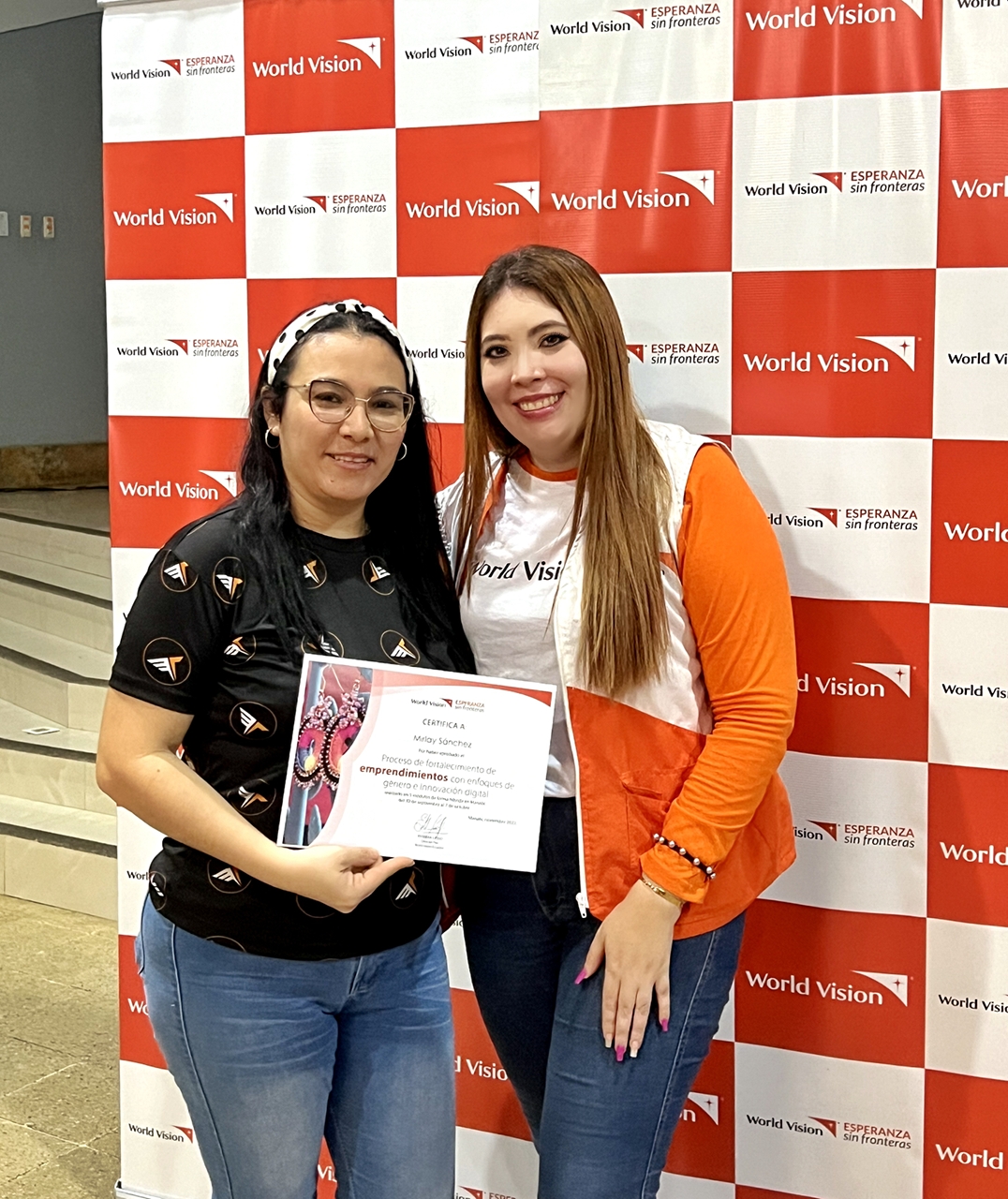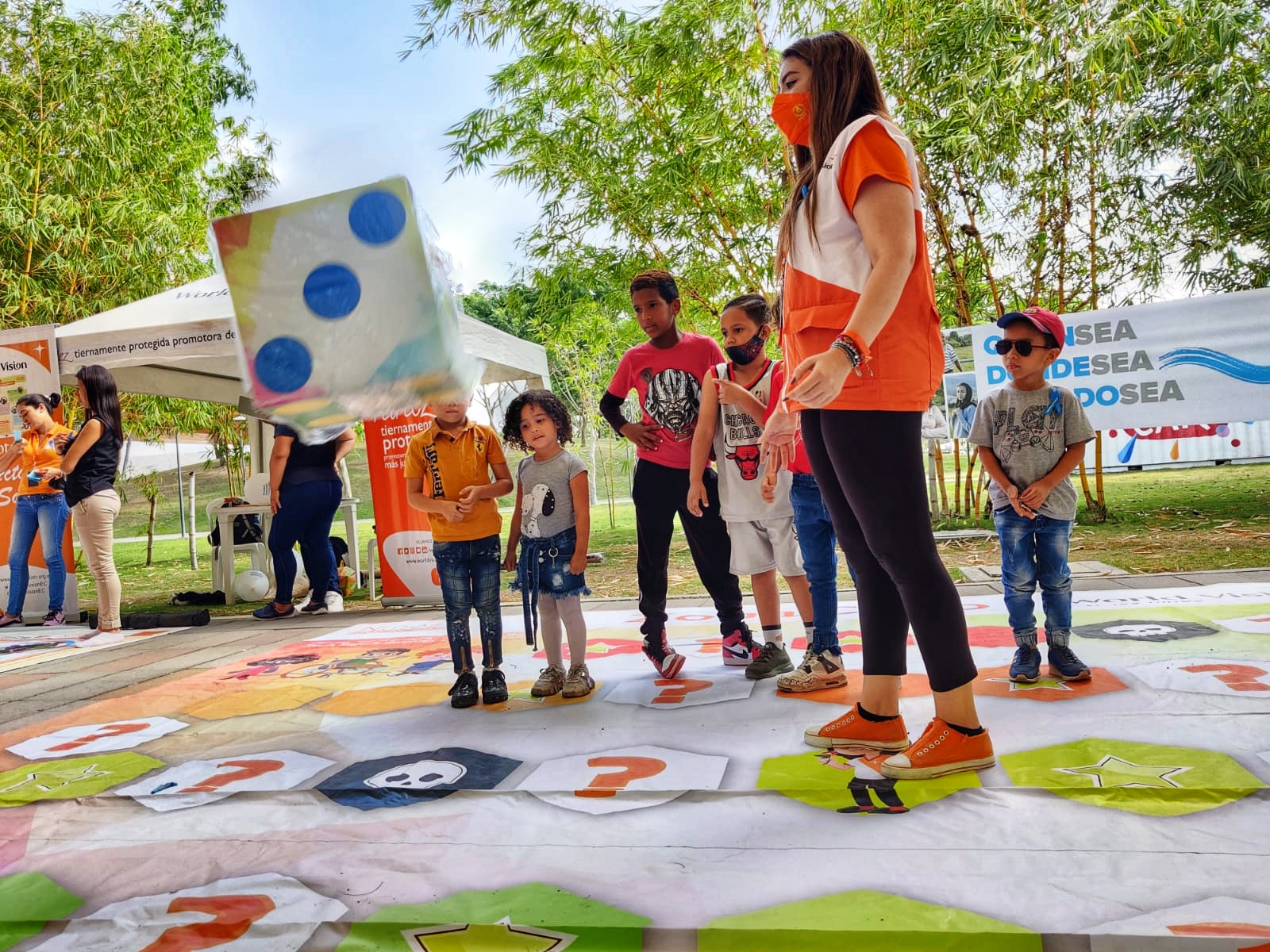Layla: Weaving Hope for Migrants and Refugees in Ecuador

Amid the daily challenges faced by thousands of people forced to leave their homes, Layla walks the streets of Manabí, Ecuador. Her mission is clear: to transform lives and build bridges between local and foreign communities. Layla is an advocate for the “Esperanza Sin Fronteras” (Hope without Borders) project of World Vision Ecuador. She has dedicated her life to creating safe spaces and opportunities for migrants and refugees in vulnerable situations, particularly children and adolescents.

Since she was a child, Layla dreamed of a job that would allow her to serve others. She grew up in a home where human mobility was an intrinsic part of her family’s story. As a result, her empathy and understanding towards refugees and migrants deepened over time. “Migration is part of my ancestors' history,” she reflects. “We all have a close story that helps us empathize with the migration process.”
Layla’s work is not just about assisting; it’s about transformation. Through her tireless efforts, she has helped thousands of refugees and migrants find shelter and food and a community that welcomes and empowers them toward a future full of opportunities. Layla has been an unwavering voice in raising awareness about the rights of migrants and refugees and in preventing gender-based violence. She firmly believes that everyone deserves to live with dignity and hope.
What keeps Layla going? Every time a mother secures a dignified job or a child laughs in one of World Vision’s Child-Friendly Spaces, she feels her work has been worth the effort. “It’s moments like these,” she says with emotion, “when I see true resilience and hope in action.” For Layla, children in mobility are her greatest inspiration. She sees in them the promise of a better future, a tomorrow where young voices are the catalyst for a more just and empathetic society.
Her work with World Vision has allowed many migrants and refugees to discover their purpose. “Esperanza Sin Fronteras has given me hope as well,” she confesses. “It has allowed me to believe in the processes that guarantee rights for refugees and migrants. It has reminded me that behind our stories, we are all migrants.”
On this World Humanitarian Day, Layla challenges us to be part of the change through every act of solidarity and compassion, leading us to a more inclusive and humane world. She dreams of a future where every refugee and migrant child not only completes their education but also becomes the voice that transforms the world, breaking barriers and building a brighter tomorrow. “I have great faith in children, adolescents, and youth. I know that every day they are trying to change the world, and they have already begun in the places where they live.”

About Esperanza Sin Fronteras (Hope without Borders)
Esperanza Sin Fronteras is World Vision's Multi-Country Response to the Venezuelan crisis. It provides support to vulnerable refugees and migrants in seven countries across the region, including Ecuador. With a presence in Manabí, Guayas, and El Oro, the project focuses on protection and integration, offering safe spaces, psychosocial support, training in entrepreneurship and employability, and assistance with regularization processes. In 2024, Esperanza Sin Fronteras in Ecuador has supported the integration of 695 people in situations of human mobility and refuge.
Written by Salomé Torres, Communications World Vision Ecuador